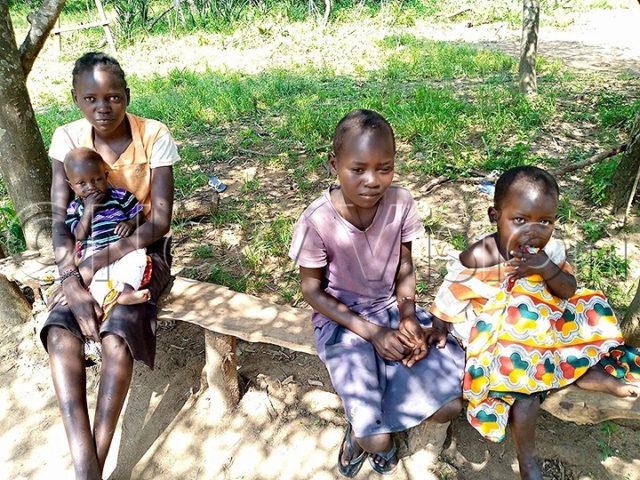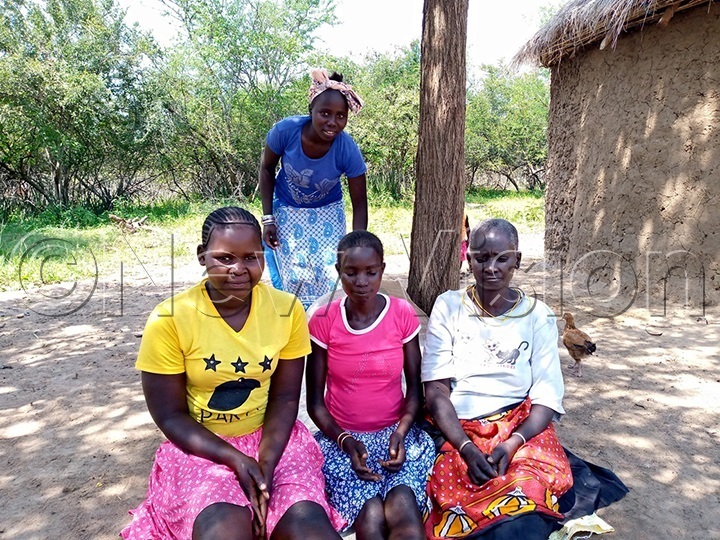Florence Nakiwala, the Youth and Children’s Affairs minister, said at least 2,730 teenage girls got pregnant during the first three months in the lockdown.
Amudat choking under teenage pregnancy
Many young girls have been getting pregnant but their stay from school, made the situation worse
HEALTH VIRUS
COVID-19 has presented a new set of challenges for schoolgirls in Uganda but for Amudat district, it has made a bad situation worse. Many young girls have been getting pregnant but their stay from school, made the situation worse.
Beyond pregnancy, there were also other cases of child abuse and domestic violence.
The Bukedi Regional Police Child and Family Protection Unit, Rose Margaret Aduo, said Amudat registered 72 defilement cases between January and July excluding March and May. Child abuse cases were 53, domestic violence was the highest at 202, reaching its peak in July at 72, excluding the month of March.
However, she noted that many cases were never reported.
About 30% of the girls below 15 years have got pregnant in Amudat district
John Robert Adiama, the Resident District Commissioner, Amudat district, says the challenge of teenage pregnancies in the district is not new, it is the numbers which have shot up during the COVID-19 lockdown.
“This problem has noticeably increased as the result of the lockdown,” he says. “We have come to learn that many of our children particularly girls are pregnant. About 30% of the girls who present to our facilities for pregnancy services are below 15 years. And, in Loroo sub-county, it goes up to 35%,” he explains.
Dorcus Chelain, the vice-chairperson of Amudat district observes that domestic violence is also common because men are not able to fully provide for their families. Girls are tormented and tired of seeing their mothers being battered. They opt to run into early marriage to escape the home trauma.
Bad situation already
Suzan Chelimo from Karita village dropped out of school at the age of 14. Her parents discovered that she was pregnant and forced her to marry the man who was responsible. They received ten cows, six goats and sh200,000 as bride price.

But the marriage lasted two months. And the parents were forced to return the dowry.
Gender experts say Chelimo’s story is common in the district. Mary Alosikin, a local councilor, notes that Chelimo needed counselling and support to give birth and continue with school.
“Obviously there was no way the marriage would last. This was a teenager being forced into marriage against her consent,” says Alosikin.
At Loroo, sub-county, it is the same story for 16- year-old Alice Chepsekek. She was forced to marry 30-year-old Alex Marur in exchange for three cows, five goats and a bicycle.
On average, 11.3% of girls under the age of 15 have given birth to at least a first baby. Sexual activity in the district starts as early as 10 years
“Chepsekek was married off young because the insurgency had left her parents poverty stricken,” explains Rebecca Chepkateke, the chairperson Women Network Karita.
Chepkateke says one out of 5 cases received by her office is about child couples who were forced into marriage seeking a divorce.
Chepkateke discloses that on average, women aged 13 – 17 in the area have two children. And most are married off at 13 years of age.
Chepkateke explains that many Pokot men prefer child marriages because they believe it is the only way to get a virgin for a bride.
Chelain says many parents look at it as a direct ticket to wealth because a virgin fetches at least 15 to 40 heads of cattle in dowry.
According to Chelain, among the Pokot, uneducated girls are considered better wives. Educated Pokot girls find it hard to find marriage partners in their communities.
Early sexual activity
On average, 11.3% of girls under the age of 15 have given birth to at least a first baby. Sexual activity in the district starts as early as 10 years, according to Chepkateke.
Chepkateke says since schools were closed in March, many girls have been forced into early marriages.
Jackson Chekweko, the executive director of Reproductive Health Uganda (RHU), says early pregnancies have adverse effects on teenage mothers, their families, and most especially the baby. This includes increased risk of low birth weight, mental retardation, poverty, dependency, insufficient health care, inadequate parenting, as well as neglect.
“Parents must know that young girls are prone to delivery complications and don’t have the psychological build to look after these babies.”
Chekweko says early and forced marriages are characterised with sexual harassment, violence, HIV/AIDS and early pregnancies that prevent young girls from attending school and completing their education thus, completing the vicious cycle of poverty.
According to Adiama, most children in Amudat start school at the age of six or eight, so they become adolescents at primary level.
Adiama says the issue of early marriages can be handled best by involving children in debating on the issue so that they are aware of the dangers.
“Those who get pregnant should be given chance to resume school after they have given birth. Illiterate parents and communities should be sensitised on the value of education”, Adiama advises.
Florence Nakiwala, the Youth and Children’s Affairs minister, said at least 2,730 teenage girls got pregnant during the first three months in the lockdown.
“Some girls are lured into early sex by lack of basic needs,” she said.
Way forward
Dr Kenneth Buyinza, the clinic services manager Reproductive Health Uganda (RHU) says government needs to draft an adolescence health policy to provide young people packages of sexual reproductive health services.
He says they carry out health education and community outreaches regularly but there is need for government to create new approaches to reach the communities.
Dr Dinah Nakiganda, the assistant commissioner adolescent and school health at the ministry of health says priority ought to be put in education.
“When girls stay in school longer, they will delay pregnancy. Even if they get pregnant, we need to strive to take them back to school, instead of marrying them off,” she explains.
Henry Semakula, the Senior Education Officer, Guidance and Counselling/ Assistant Coordinator Health- HIV unit fronts skilling the youth.
“We should note that human capital becomes human resource only when we add value to it,” he says.
The executive director of Uganda Children Authority, Martin Kiiza, also warns parents against child abuse which has been on the rise during the COVID-19 pandemic.
Sexual violence has the highest number of cases since COVID 19, during this pandemic violence against children has increased.
“67% of children affected were female and 33% boys. We urge all stakeholders to join in the fight against child abuse,” Kiiza said.
Government vision 2040 commits to reducing the high fertility rate as a means to create a more sustainable population age structure in the next 30 years. The government hopes to increase access to reproductive health services, keep all children of school-going age in school, with more emphasis on girls.
Dr Buyinza says the key feature of Reproductive Health Uganda (RHU)’s intervention to fight teenage pregnancies has been the provision of advisory services to the locals about reproductive health.





